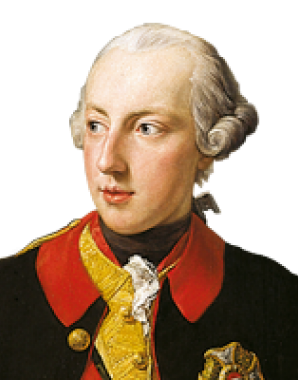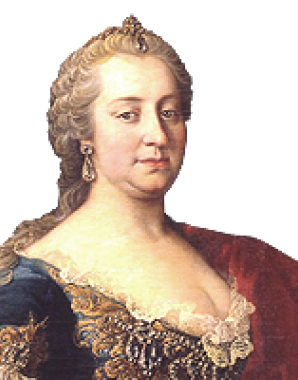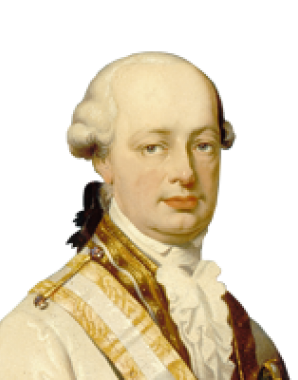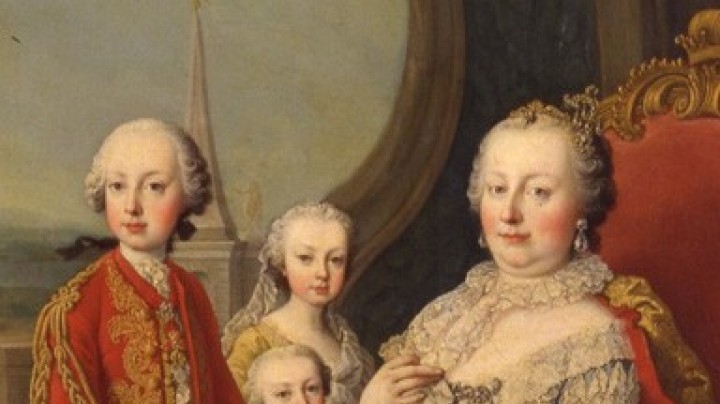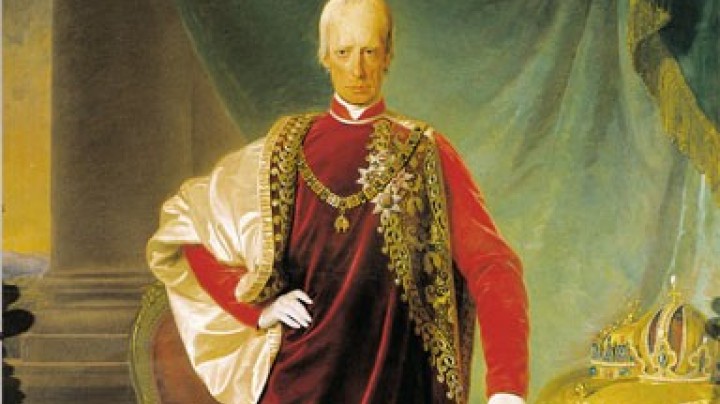The useful emperor: Joseph II
‘Everything for the people but nothing through the people’ – this was the motto under which Joseph II attempted to implement his programme of reform.
Leopold II on his brother Joseph II’s relationship with their mother Maria TheresaBy taste and by virtue of his character he takes pleasure in constantly contradicting everything and everyone, in always doing precisely what is not wanted and in offending others even in the smallest matters. This is particularly the case with the Empress, which is why they are forever engaged in loud arguments with one another, he constantly saying offensive things, angering her and threatening to go away, provoke a scandal, abdicate his regency or other such things.
Joseph II had great veneration for his mother Maria Theresa’s arch-enemy Frederick the Great. Like the Prussian king, Joseph regarded himself as the ‘first servant of the state’. Although his thrift in his private finances and distaste for Baroque court ceremonial earned him the reputation of being a man close to the people, Joseph never actually took steps to overcome social differences. For all that he was influenced by the Enlightenment, he never came anywhere near questioning the fundamental principles of Absolutism. And while pursuing the modernization and unification of the state for his own particular ends, he kept his distance from the revolutionary core of Enlightenment thought.
Taking ‘utility’ as his motto, Joseph maintained an unqualified belief in progress. His reforms focused on the administration, centralization, and bureaucratization of the territory under his rule, with the ulterior motive of bringing his lands and their population under state control and monitoring them through police surveillance. All this was implemented for economic reasons: the productivity of the populace was to be increased in order to raise general standards of welfare. Even his ‘toleration’ of Protestants and members of the Jewish faith was in the final analysis intended to be economically ‘useful’.
Josephism is above all associated with his ecclesiastical reforms, which in Catholic circles have earned him the reputation of having been an enemy of the Church. Although Joseph was deeply concerned about the deeply rooted irrationality of his people, he found that centuries of piety, veneration of relics, ritual and superstition could only be overcome with great difficulty. Joseph closed down monasteries and convents, founded a unified system of seminars for the training of priests and decreased the high number of religious holidays. In spite of his rigorous policy towards the Church, however, he remained an adherent of Catholicism, which he exploited for the creation of a centralistic unified state.
His reforms in the fields of social welfare, justice and bureaucracy were oriented towards the same goal. No longer were his subjects to be kept hard at work through threats and the use of force, but all areas of life were to be regulated for the common good. While it cannot be denied that Joseph II was a willing and determined innovator, his reforms did not succeed in bringing about profound and enduring changes in the Habsburg multinational empire or its administration.



